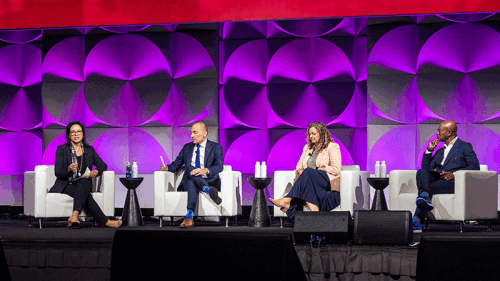I recently tagged along as ULI’s research team, together with our partners at PwC, rolled out the 2012 version of Emerging Trends in Real Estate Asia Pacific during a six-city swing in early December. The report’s key finding, reinforced and amplified by the audiences and response panels at the various events, is that a tenuous balance exists in the Asia Pacific region between interdependence and self-sufficiency.
On one hand, the West’s troubled economies, political crises, and sovereign debt woes have combined to create a cautious, even anxious climate for real estate investment and development in many Asian markets. The fear is that European and American problems are inevitably contagious.
On the other hand, real estate capital flows in Asia and the evidence of real deals on the ground suggest that as foreign buyers have retreated, local and regional sources of capital have stepped up—and that the region is showing, at least from a liquidity standpoint, newfound independence.
No doubt these opposing forces will continue to tangle, but my takeaway was that ULI is uniquely positioned to help illuminate these patterns. Emerging Trends reports, which are produced annually for each of ULI’s three regions—the Americas, Europe, and Asia Pacific—document hundreds of interviews conducted with industry leaders around the globe and, as such, represent a unique barometer of the business outlook for the coming year.
Unsurprisingly, the collective outlook for 2012 is relatively glum, with pockets of recovery overshadowed by uncertain macroeconomic and political outcomes. Asia Pacific, and to a lesser extent North America, can at least point to robust long-term growth prospects, due in large part to steady population increases and an ample supply of young, highly skilled workers. In Europe, where many countries are losing population and the bulk of the workforce is aging into retirement, the bright spots are fewer and farther between.
Against this backdrop, ULI is continuing to expand, offering members in vastly different markets around the world access to an industry knowledge exchange informed by both local and international issues. Former ULI chairman Jeremy Newsum likes to characterize our organization as “multilocal,” rather than global, as ULI is often described. Few businesses are as localized as real estate, and there are relatively few truly global players. At the same time, our members are interested in how global trends affect their own particular areas, even if they do not primarily see themselves as internationalists. Once every other year or so, enough issues of significant international impact accumulate to merit a global gathering other than the annual Fall Meeting, but we still must view our members as having affinity first for their hometown or region.
The ability to simultaneously think globally and act locally—connecting global trends to local decision making—is one of the great strengths of ULI. Our 52 district councils and 14 national councils, coordinated through the Institute’s regional and global structure, make the linkage work.
In the aftermath of the financial crisis, ULI’s leaders reaffirmed the organization’s commitment to a global program. We continue to see evidence of the soundness of that decision. During my Asia visit, we formed an exploratory committee for ULI Australia and took solid strides toward formation of a district council in Shanghai.
ULI’s new Global Strategy Committee recently approved the organization’s detailed plans for growth in Europe and Asia. Its members will soon develop more detailed criteria for where and when ULI next expands, but the current focus is to deepen our program and achieve a durable financial footing where we have a core of interested and engaged members.
At the same time, we face interesting, and not always predictable, opportunities. His Highness the Aga Khan, the 2011 laureate of the ULI J.C. Nichols Prize for Visionaries in Urban Development, has challenged ULI to work with the Aga Khan Development Network (AKDN) to identify an appropriate program for engagement with communities in the developing world.
In my view, this is a wonderful way to extend ULI’s reach to new audiences around the globe. The Aga Khan and his network have created universities and medical centers in areas of the world that lacked such vital institutions. Economic development, microfinance, education, cultural preservation, promotion of tourism, and humanitarian assistance all are part of the organization’s focus. The knowledge we gain from working with AKDN will greatly broaden our thinking and our approach to community building.
I have high hopes for ULI in 2012 and the years ahead. I am convinced that our multilocal approach has great potential to create value for our members and to magnify ULI’s beneficial impact. In all these places, ULI’s culture and values resonate—the creation of durable value, long-term thinking, regional balance, cooperative public/private leadership, and an obligation to share with others the best, most innovative practices.

